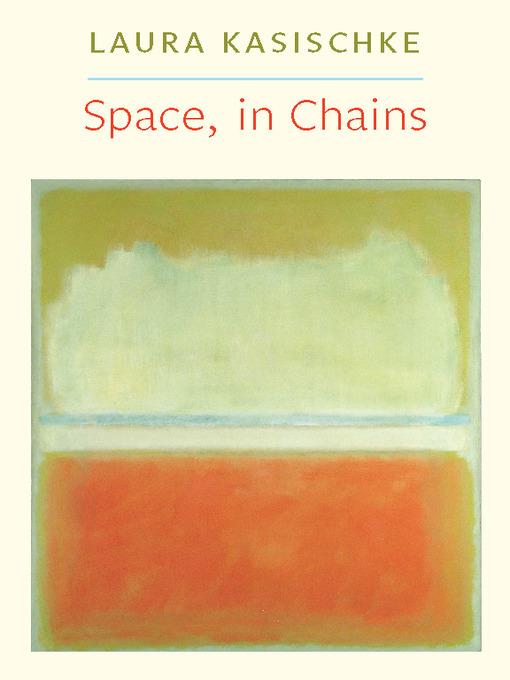
Space, In Chains
فرمت کتاب
ebook
تاریخ انتشار
2011
نویسنده
Laura Kasischkeناشر
Copper Canyon Pressشابک
9781619320093
کتاب های مرتبط
- اطلاعات
- نقد و بررسی
- دیدگاه کاربران
نقد و بررسی

Starred review from December 20, 2010
Frightening in its confrontations with death—that of a father and, eventually, of everything—Kasischke's new work is also ambitiously exhilarating: everything in life and literature, it seems, could come before her eye, could end up in a poem—"the terror of foxes./ And the children's hospital./ And the hangman's alarm clock," even "Lazarus, who surely never dared/ to lay his head/ on a pillow/ and close his eyes again." Known for her representations of mothers and teenagers in her poems and in her many novels, Kasischke now takes equal interest in illness and old age: rightly celebrated for her irregular, spiky, and intricately rhyming lines, Kasischke has now extended her interest (begun with her last book, Lilies Without) in the prose poem, using its fragments for recollection—"the ridiculous cheerfulness of sunflowers, the drifting immemorial ashes of the blueprints, the soup grown cold." For all its length and all its lists, the volume ends up tightly, almost wrenchingly focused on the omnipresence of suffering, the fact of mortality and the persistence of grief. Some readers might call it melodramatic; many more ought to call it symphonic, perceptive, profound.

January 1, 2011
The narrators in poet/novelist Kasischke's eighth collection (after Lilies Without) examine a fractured past in a tone both haunting and erotic. Winner of the Elmer Holmes Bobst Award as well as several Pushcart Prizes, Kasischke writes open-formed language poems set in the place where paradox meets mystery. She pursues a stream-of-consciousness style, using rhyme, repetition, and subliminal connections to hook the reader. Often her pieces seem more like paintings than poems; like impressionist works of art, they allow light to shine from various portals, then bring it all together to create a misty composition whose meanings seem to change before the reader's eyes. ("My Son Makes a Gesture My Mother Used To Make" does this extremely well.) VERDICT In the best poems here, memories of childhood and adolescence mingle with religious and philosophical questions as Kasischke deals with subjects both homey and exotic, from sex to smoking cigarettes to questions about the existence of God. What Kasischke says often doesn't matter as much as the hypnotic way she says it. Most readers of contemporary poetry will want to take a look.--Diane Scharper, Towson Univ., MD
Copyright 2011 Library Journal, LLC Used with permission.

























دیدگاه کاربران